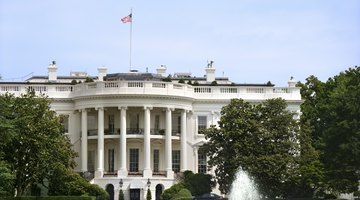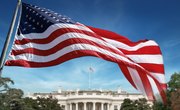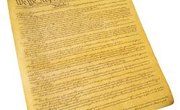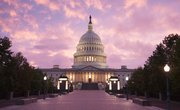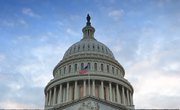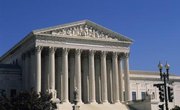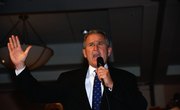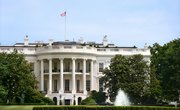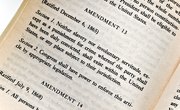The Constitution is the founding document for the U.S. federal government. The 10th Amendment makes explicit that any powers not delegated by the Constitution to the federal government are left to the states or the people. Those powers delegated, or assigned, to the executive branch, with the president at its head, are described in Article II of the Constitution, and the implied powers of the president are limited compared to the explicit powers that the Constitution grants.
Execution and Enforcement
Section 1 of Article II places the ultimate executive power of the federal government in the office of the president. As chief executive, the president controls the administration of the federal government and oversees a vast network of law enforcement agencies that assist in enforcing laws passed by Congress. Enforcement power can be interpreted broadly. For example, President John F. Kennedy ordered U.S. marshals and members of the army to enforce a court order that compelled the University of Mississippi to admit black students. The president appoints the heads of executive branch agencies, 15 of whom also are members of the cabinet. People nominated for those posts must be confirmed by the Senate. Cabinet members advise the president on issues in their areas of expertise. Executive agencies issue regulations to ensure compliance with federal laws.
The Buck Stops Here
President Harry Truman had a sign on his desk reading "the buck stops here," a saying that meant he couldn't pass on responsibility to anyone else. As head of the federal government, the president reviews legislation passed by Congress before they become law. Presidents who disagree with a law may veto it. Congress may override a veto with a two-thirds majority, but this seldom happens. Additionally, the president has the power to issue executive orders, which have the force of law but don't require congressional approval. While executive orders aren't explicitly mentioned in the Constitution, they're implied by the grant of executive power. Presidents also have the power to issue pardons for violations of federal law. For example, Presidents Gerald Ford and Jimmy Carter issued amnesties, or blanket pardons, for all men who had evaded the draft during the Vietnam War.
The Face of the Nation
The president also serves as chief of state, the symbol and voice of the nation in international affairs. The president sends and receives ambassadors and conducts diplomacy, along with the implied power to officially recognize foreign governments. The Constitution grants the president authority to negotiate treaties on behalf of the United States, although agreements require a two-thirds vote of the Senate before they become binding. The president also has the power to make executive agreements with leaders of other countries. Like executive orders, these agreements don't require congressional approval. However, while treaties supersede any contradictory U.S. law, executive agreements do not. Although not explicitly mentioned in the Constitution, executive agreements have been considered an implicit part of presidential power since 1803, when President Thomas Jefferson completed the Louisiana Purchase without any input from the Senate.
Desperate Times, Desperate Measures
Emergency powers are among the most controversial powers U.S. presidents claim. While the power to act decisively in a crisis situation isn't granted to the president outright, it isn't delegated to Congress either. Emergency powers are considered implied powers, derived from the president's constitutional duty to "preserve, protect and defend" the Constitution and the president's role as commander-in-chief of the armed forces. Although Congress alone has the power to declare war, the president can commit troops in a variety of international situations without a formal declaration of war. In times of war, presidents use executive orders to defend national sovereignty, as President Franklin D. Roosevelt did by creating Japanese internment camps during World War II. President Truman seized American steel mills when North Korea invaded South Korea -- a use of emergency powers that was later ruled unconstitutional by federal courts.
Related Articles
References
Writer Bio
Jennifer Mueller began writing and editing professionally in 1995, when she became sports editor of her university's newspaper while also writing a bi-monthly general interest column for an independent tourist publication. Mueller holds a Bachelor of Arts in political science from the University of North Carolina at Asheville and a Juris Doctor from Indiana University Maurer School of Law.

